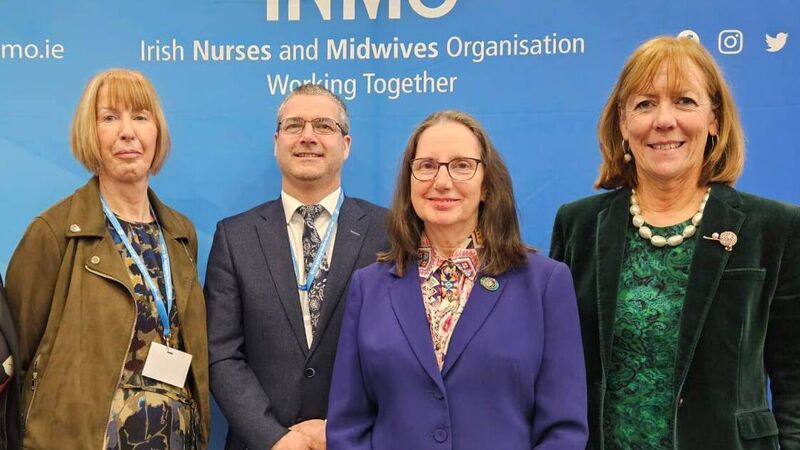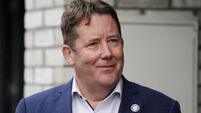Midwifery conference hears how face of maternity care is 'changing'

NWIHP lead midwife Angela Dunne, far left, and National Maternity Hospital director of midwifery Mary Brosnan, far right, with fellow speakers at the national maternity and midwifery festival. File picture
The HSE board has asked the National Women and Infants Health Programme (NWIHP) to assess and ensure maternity services are safe.
A midwifery conference also heard calls for women’s voices to be more at the centre of maternity care.













